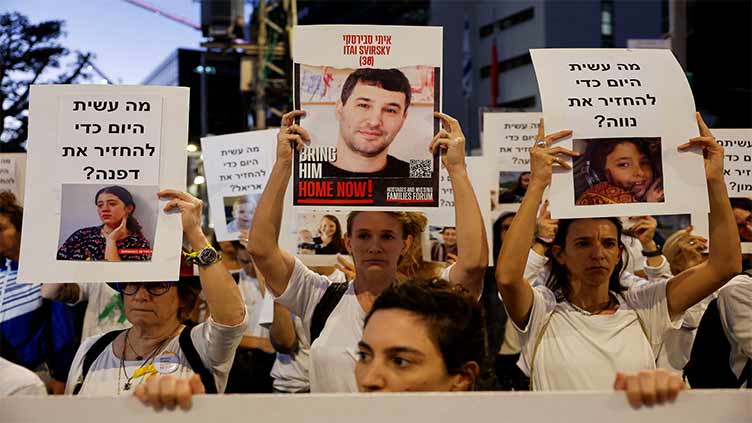Iraq condemns U.S. strikes that killed Iran-aligned militia members

World
Iraq condemns U.S. strikes that killed Iran-aligned militia members
BAGHDAD (Reuters) - Iraq's government condemned overnight U.S. airstrikes south of Baghdad that killed eight members of Iran-aligned Iraqi paramilitary group Kataib Hezbollah, saying they were a "dangerous escalation" not coordinated with authorities.
The U.S. has carried out two series of strikes in Iraq since Tuesday, in response to more than 60 attacks by Iran-aligned militias against forces in the region, and destroyed a Kataib Hezbollah operations centre and a command and control node.
Until this week, the United States had been reluctant to retaliate in Iraq because of the delicate political situation in Baghdad, where they have sought closer cooperation, and in an effort to avoid regional spillover from the Gaza war.
The attacks began on Oct. 17 and have been linked by Iraqi militia groups to U.S. support for Israel in its bombardment of Gaza following attacks by Palestinian militant group Hamas on Israel.
Kataib Hezbollah said the latest strikes killed eight of its members in its stronghold of Jurf al-Sakhar, south of Baghdad.
In a statement, it threatened to attack a wider array of targets if U.S. strikes continued.
The Iraqi government condemned the U.S. strikes as "a clear violation of sovereignty and an attempt to disrupt the stable internal security situation," while also noting attacks by armed groups went against Iraq's national interest.
It said in a statement that the strikes were a violation of the advisory role of international forces in Iraq to fight the remnants of the Islamic State militant group - a coalition that a number of factions in Iraq's Shi'ite Muslim ruling coalition say they want ousted.
Kataib Hezbollah is part of Iraq's Popular Mobilisation Forces (PMF), a group of many mainly Shi'ite Muslim armed groups that was formed in 2014 to fight Islamic State and subsequently recognised as an official security agency by Iraq's government.
Iraqi Prime Minister Mohammed Shia Al-Sudani has limited control over some Iran-backed factions, whose support he needed to win power a year ago and who now form a powerful bloc in his governing coalition. Many of the factions also do not see eye-to-eye on actions against U.S. forces.


